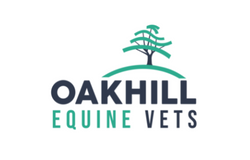Castration
Stallions and colts can be dangerous, especially near in season mares. Without castration they can lead an isolated life, so by castrating they can be turned out and be more socialised.
CATSRATION FOR YOUR HORSE
Castration involves the surgical removal of both testicles, to prevent unwanted pregnancies and behaviour associated with some stallions. There are 2 different types of castration procedures that can be performed:
Open castration
Recommended for horses under 4 years of age, an open castration can be done either at your yard or in our equine clinic. This quick procedure by our vet and involves a short general anaesthetic, where the horse lays on the floor. Horses can be turned out with mares within 6 weeks of the procedure. Those horses who were displaying ‘stallion like’ behaviour often calm down in just a few weeks.
Closed castration
Closed castration is safer for older horses (over 4 years) and has to be done here in our equine clinic. The procedure involves your horse staying with us as an inpatients for 2-3 days.
WHAT TO EXPECT WITH AN OPEN CASTRATION
A routine open castration usually takes between 45 and 90 minutes from start to finish. We briefly check each horse over to make sure they’re fit and well and have two testicles descended into the scrotum. If the testicles are only partially descended, the animal may need to be castrated under general anaesthetic.
The patient is heavily sedated using intravenous sedatives and we inject them with a pain killer, an antibiotic and tetanus antitoxin. At this point it’s really useful if the horse is well handled and used to their owners ‘having a feel’, as we need to administer the local anaesthetic (without getting a kick!).
Using a scalpel, the skin and tunic containing the testicles are incised and the testicles exposed. The ligament that suspends the testicle is crushed and cut off along with the blood vessels. Depending on the animal, a ligature (stitch) is not usually placed around the blood vessels during standing castration.
The surgical wounds are left open to allow drainage of inflammatory fluids. The wounds may continue to weep for a few days after castration with a watery bloody discharge and will generally take four to six weeks to heal.
WHAT ARE THE RISKS?
Although castration is a routine operation, complications do occur The two that can be encountered immediately post-operatively are bleeding or herniation.
Bleeding will occasionally occur after castration. If the bleeding is in ‘countable drops’, this will usually slow and stop within a few hours, without any veterinary intervention. Occasionally, bleeding is more severe and will require veterinary attention to stop it. The bleeding vessel can be tied off with suture material or crushed with a small clamp or the scrotum may be packed with a pressure dressing for 24hours.
Herniation involves intestine or abdominal organs protruding from the wound. This tissue may be a small portion of the testicular sack which is easily rectified. If the tissue is a piece of gut or the fatty tissue that surrounds the gut (omentum) then emergency veterinary assistance is required. This tissue needs to be replaced into the abdomen and the inguinal canal sutured shut. This will require sedation or even general anaesthetic so the animal may need hospitalisation.
Infection may occur after castration. This can be identified by excess swelling of the scrotal area, a stiff hindlimb gait or pus-like discharge from the wound area. This needs to be treated by wound cleaning and antibiotics. Occasionally infection will break out months or even years after castration. This is called scirrhous cord and is likely to need surgical removal.
PREPERATION FOR CASTRATION
Castration is always easier if the patient is used to being handled, so practice before the visit!
Before the date, it is best to discuss the operation with your vet to assess you and your horse’s individual circumstances.
Tetanus cover is vital so please check if your horse is vaccinated and bring the horse’s passport with you.
It is useful to have a well lit, confined area such as a stable, a pen with a clean bed or a paddock. The vet will also require warm clean water.
If you need some advice on castration or would like to book an appointment, please contact us on 01772 861300.
Call us